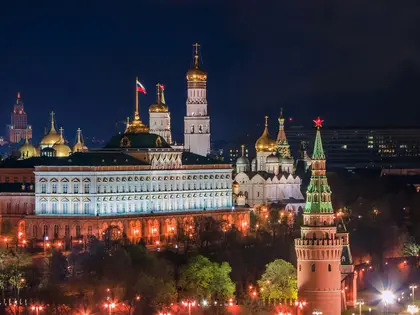It has become customary to oppose aid for Ukraine with the justification that “Russia cannot be defeated.” This assumption has been so effectively disseminated that it has become virtually an unchallenged truism. However, it is an evident falsehood and a deception heavily promoted and oft-repeated by Russian officials and its benighted supporters.
The logical conclusion would be to take Pope Francis’s advice and grasp the opportunity to wave a white flag and negotiate a cease-fire at any cost. After all, if Ukraine cannot defeat Russia, then the sooner the fighting ends, the less damage and loss of life. This is a narrative that needs to be critically examined, considering the influence of Russian propganda in shaping public opimiom.
In his “Art of War,” Sun Tzu, the legendary Chinese military strategist, famously stated that “all warfare is based on deception.” He then noted: “One need not destroy one’s enemy. One needs only destroy his willingness to engage.”
Promoting the fiction of Russian undefeatability is one of Russia’s most potent deceptions in destroying a “willingness to engage.” However, even a cursory review of Russia’s military successes in modern times would find little support for that assumption. Its military success record has been dismal, and even its occasional “victory” has been that of a thug and braggart rather than an equally matched or severe adversary.

Moldova Residents Caught in the Middle of Gas Fight
Let’s consider its record from the beginning of the 20th century.
- 1. Russo-Japanese War –Treaty of Portsmouth (1905). Russia was forced to evacuate Manchuria and give up its sphere of interest over Korea. It ceded its 25-year Port Arthur leasehold and the southern half of Sakhalin Island to Japan.
- World War I – Treaty of Brest Litovsk (1918). In this conflict, Russia agreed to recognize the independence of Ukraine, Georgia, and Finland. It ceded Poland and the three Baltic states to Germany and Austria-Hungary, as well as Kars, Ardahan, and Batum to Turkey – more than a million square miles of Czarist-ruled territory.
- Russo-Finish War – Moscow Peace Treaty (1940). Russia hoped to recover and annex Finland (pop. 4 million vs 170 million) but recognized its independence in exchange for some territorial concessions.
- Nazi/Russo – Polish War – Per the Molotov-Ribbentrop-Pact (1939), Russia colluded with Germany in joint occupation of part of what was then Poland.
- World War II – Paris Peace Treaty (1947) and Treaty of San Francisco (1951). Notwithstanding Russia’s self-glorifying “victory” over Nazi Germany, the issue is more complex and nuanced. World War II was won by a “Grand Alliance” of 30 nations (including Russia) against eight “Axis” nations in Europe and Asia.
The Soviet Union’s role was limited to fighting only against Germany and only along Germany’s eastern Front. Although much of the fiercest fighting and casualties were on that Front, the Germans could not risk diverting more than 20% of their military manpower from other theaters of the war. Furthermore, the Soviet Union benefited greatly from the approximately $200 billion (in current U.S. dollars) of American “Lend Lease” and supplies from England and the other allies. Although Putin credits Russia with winning the war against Germany, the credit belongs to the Allied Powers, of which the Soviet Union played a part. Without Allied support and participation, the outcome would likely have been different.
Advertisement - Russo-Afghan War. In 1989, after ten years of bloody repression in their effort to subjugate Afghanistan, Russian forces left in defeat.
- First Russo-Chechen War – Khasavyurt Accord and Treaty of Moscow (1996). After two years of fighting to gain its independence from Russia, tiny Chechnya (pop. 1.5 million) forced the Russian army to withdraw.
- Second Russo-Chechen War – In 1999, Russians returned to restore their rule and succeeded with the help of a Chechnyan warlord.
- Russo-Ukrainian War – After Russia’s 2014 occupation of Crimea and part of Ukraine’s Donbas, Ukraine remains steadfast in its commitment to recovering all its territory. Despite the enormous asymmetry between the two nations, the daily trench warfare continues into its tenth year – more than twice as long as that of World War I.
Out of the nine wars in which Russia has participated in modern times, it can claim only two clear victories: the occupation of Poland jointly with Nazi Germany and the suppression of Chechnya after defeat in its first invasion. Four of its wars have been clear defeats.
The Russo-Finnish War) was a partial success only in that Russia had to settle for land acquisition and abandon its dream of restoring Finland to Russia’s imperial holdings. Its World War II battles on Nazi Germany’s eastern front succeeded only as part of a collective effort by a 30-nation alliance. Its most recent war – with Ukraine – is still, after ten years, undetermined.
History – and facts on the ground – have demonstrated that Russia is very “defeatable” as long as its opponent is determined to hold out. No one should expect a railroad-style capitulation such as Germany’s signing of the Treaty of Versailles or Vladimir Lenin’s grudging acceptance of the Treaty of Brest Litovsk in World War I. It is unlikely that either Ukraine or Russia will ever agree to such a “capitulation.”
However, assuming that Russia cannot be defeated despite its vastly greater population and resources is wrong. It has been “defeated” many times in the wars in which it has engaged,
So, we should not fall prey to thinking and accepting assumptions that weakens our resolve to fight and win. Let us take heed of Sun Tzu’s wise counsel from his grave: Ukrainians need not destroy their enemy. They need only destroy his willingness to engage.
The views expressed are the author’s and not necessarily of Kyiv Post
You can also highlight the text and press Ctrl + Enter










